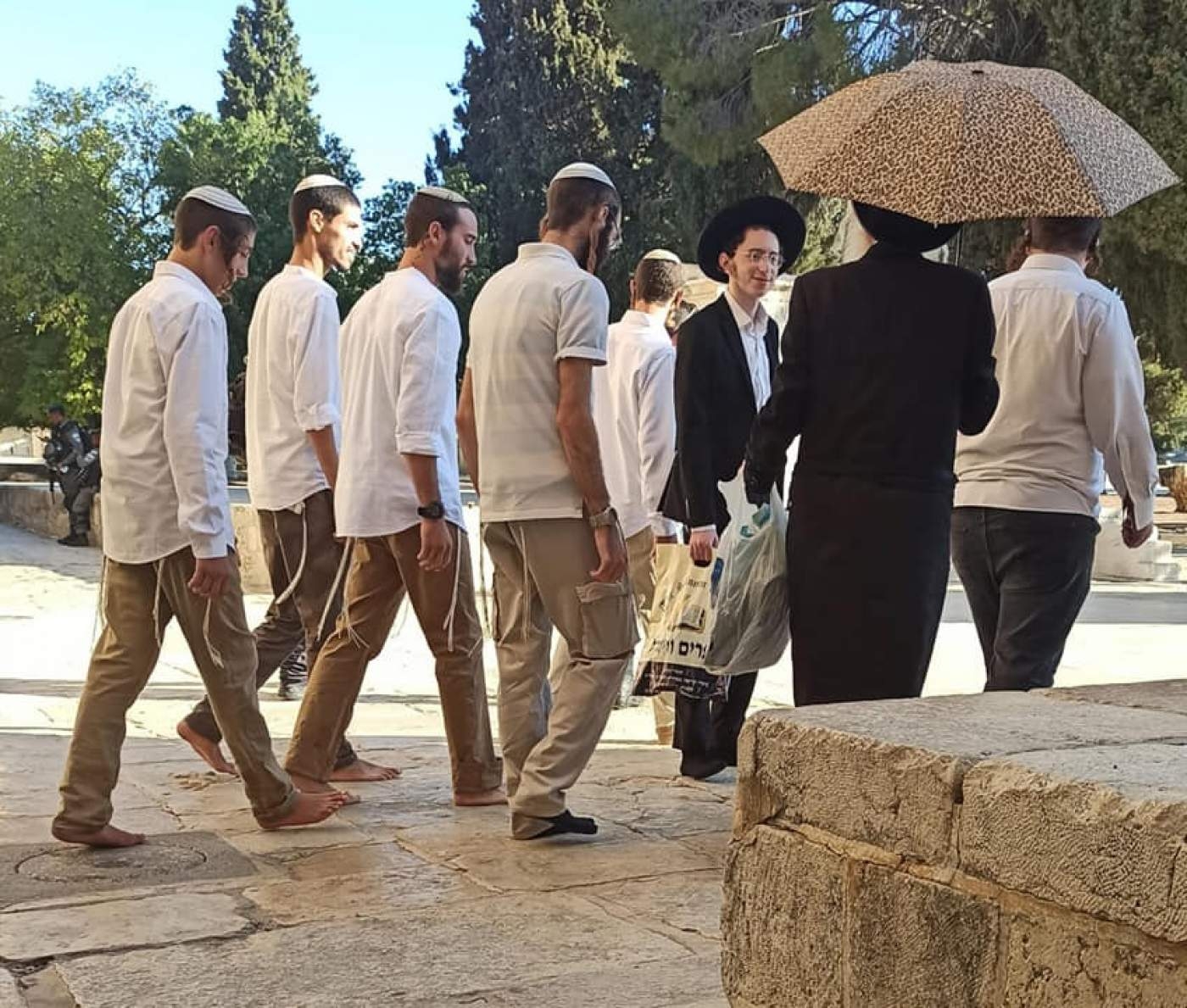Al-Aqsa: Dozens of Israeli settlers storm mosque after Jewish holidays

Dozens of Israeli settlers stormed al-Aqsa Mosque in occupied East Jerusalem's Old City on Tuesday, in a move seen as "provocative" by Palestinians.
Local media reported that 70 or so settlers entered al-Aqsa through the Moroccan Gate on the western side of the compound, which the Israeli authorities have controlled since the beginning of the occupation of East Jerusalem and the West Bank in 1967.
Jerusalem's Islamic Waqf has repeatedly described the settlers' tours as "provocative" and said that Palestinian worshippers and guards at al-Aqsa Mosque feel uncomfortable with the presence of Israeli police and settlers at the Muslim holy site.
In September, almost 6,117 Israeli settlers broke into the compound during the Jewish holidays of Rosh Hashanah, Yom Kippur and Sukkot, according to a monitoring report by Palestinian National Agency (Wafa).
New MEE newsletter: Jerusalem Dispatch
Sign up to get the latest insights and analysis on Israel-Palestine, alongside Turkey Unpacked and other MEE newsletters
Despite a longstanding joint agreement between Israel and Jordan, Israeli far-right activists have repeatedly pushed for an increased Jewish presence at al-Aqsa.
Some right-wing Israeli activists have advocated for the destruction of the al-Aqsa Mosque complex to make way for a Third Temple.
But others want to seize the eastern area of the complex, known as al-Rahmeh Gate, to turn it into an exclusive Jewish praying site, accessed by an ancient gate in the eastern wall of the Old City.
Palestinian Muslims and Christians do not seek to pray in the Western Wall Plaza, the holiest site in Judaism to the east of Al-Aqsa Mosque. Their access to the site, however, has to go through a strict security check.
Under attack
The al-Aqsa Mosque was one of the flashpoints of the violence in May. Israeli forces stormed the site in the month of Ramadan and assaulted Palestinian worshippers, firing rubber-coated bullets and tear gas at them.
At the height of the Covid-19 outbreak, in early 2020, the complex was closed altogether for 69 days, finally reopening on 31 May. During the closure, Israeli authorities still allowed settlers to tour and enter the site.
Settlers backed by Israeli forces regularly break into al-Aqsa Mosque to tour around the Dome of the Rock, a mosque built in the 7th century by the Umayyad caliphate on Moriah Mount and perform prayers on the site.
Israel occupied East Jerusalem during the 1967 Arab-Israeli War. It annexed the entire city in 1980, in a move unrecognised by the majority of the international community.
The Old City of Jerusalem and the al-Aqsa complex remain the most sensitive components of the Israeli-Palestinian conflict.
Middle East Eye delivers independent and unrivalled coverage and analysis of the Middle East, North Africa and beyond. To learn more about republishing this content and the associated fees, please fill out this form. More about MEE can be found here.

